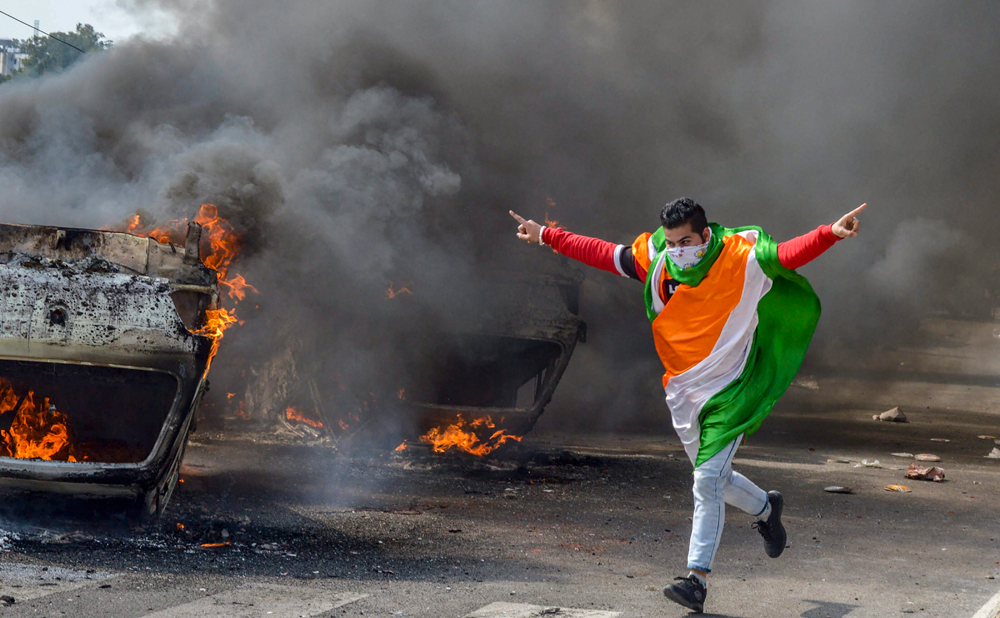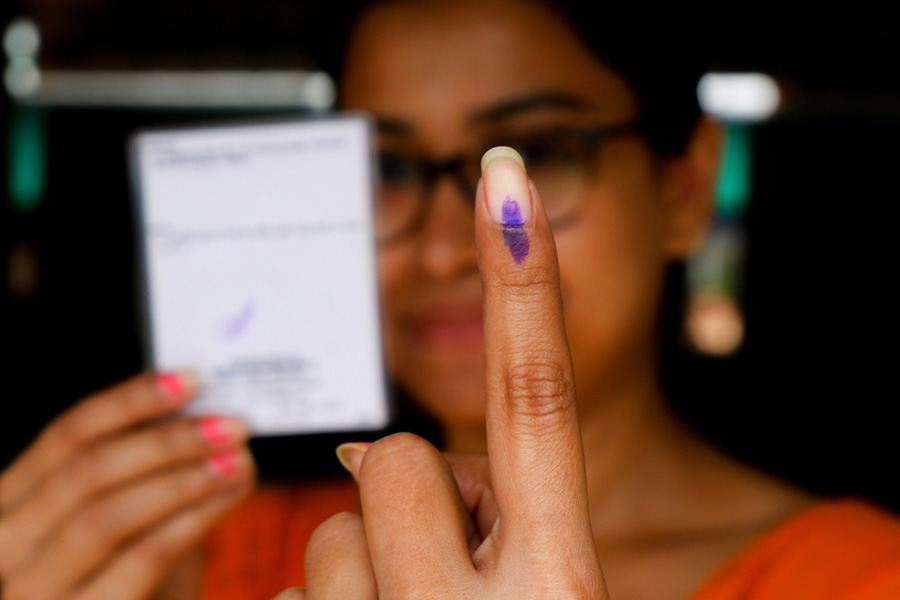Sir — The article, “Old world, new fury” (March 15), by Chandrima S. Bhattacharya was brilliant. It prompts one to ask an important question: what is terror? Is its definition restricted to an orchestrated, armed attack or the use of bombs and other weapons to kill people? Are not uthoritarianism and dictatorship forms of terror?
I was shocked to see that in the aftermath of the Pulwama attack, young people — barely into their teens — were circulating messages on social media and instant messaging platforms which equated the entire minority community with terrorism. The dominant emotion was one of seeking revenge. Is this not terrifying? Those amongst us who dared to speak up and point out that an eye for an eye will only leave the world blind were threatened as well. Is this any less scary? So much poison has been injected into the public discourse that even teenage boys — receiving education in reputed schools — are beginning to sound like fanatics.
This is not all. One does not dare protest against the hasty decisions of the government like demonetization or against everyday lawlessness like people with political patronage blaring loudspeakers in the middle of the night. Anything at all can cause enough fury to result in a lynching these days.
Protests against the heinous attack in Pulwama are justified. But so are protests against all other covert forms of terror. More important, protests should be civilized and not hurt or harm other people, even those against whom one is protesting.
Kajal Chatterjee,
Calcutta
Sir — Chandrima S. Bhattacharya is right in her assessment of how rabid nationalism has vitiated the atmosphere and broken age-old bonds that were the basis of society. This is worrying. If something is not done at the earliest, it might be too late.
Rima Roy,
Planning ahead
Calcutta
Sir — A study published in the Journal of Management shows that “reattaching” to work is just as important to success and well-being as detaching from it. Simulating the workday in one’s mind and planning ahead can create positive outcomes and thus improve one’s relation with one’s work. This will also reduce stress as it will minimize the chance of chaos and thus mistakes. However, this should not mean that people spend all their leisure time thinking about work. Like too much of anything, this will ruin the happiness that is to be had from a job well done.
Upamanyu Sen,
Calcutta
Strong base
Sir — It is unfortunate that hardly a day passes when Jawaharlal Nehru is not criticized on some or the other pretext by the ruling dispensation (“Nehru did it!”, March 15). Nehru was, without doubt, the architect of modern India. He built the foundation of India’s economic and scientific development. The Bhakra Nangal dam, the Indian Institutes of Technology, the Damodar Valley Corporation and several other projects were established under the leadership of the first prime minister. It was the work that he did in the nascent years of this democracy that subsequent governments have carried forward. In fact, many of the achievements that the Bharatiya Janata Party government has claimed for itself would not have been possible unless Nehru and subsequent leaders of the Congress had not initiated the projects earlier. India’s mission to Mars is a case in point.
It should also be noted that India has never lacked either martial strength or cricketing honour — the two fields have now been infused with nationalistic fervour. India won two decisive victories against Pakistan under the stewardship of Lal Bahadur Shastri and Indira Gandhi. India also won the cricket World Cup for the first time under in 1983 — a time when cricketers did not make overt patriotic gestures. They gave their all to the game. That was their way of being patriotic. Religious differences have always been exploited by politicians but never to the extent in which they are now. Hindutva was an idea that found place only in the fringes.
Debasish Chatterjee,
Calcutta











